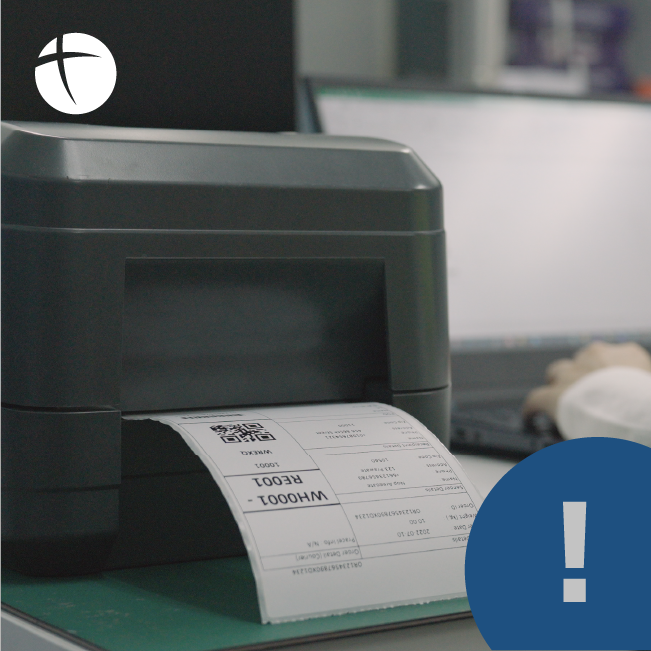Introduction
One of the key goals for any company should be continuous development. This way, your business won’t fall behind the competition. However, to achieve this, it is essential to embrace the process of change and continuously adapt to the environment. A tool that supports this approach is an effective and tailored production management system. When should this solution be implemented? What benefits does production optimization bring? How should a new production management system be implemented? Find out more about this helpful tool that every entrepreneur focused on business growth should be aware of!
When Is It Worth Implementing a New Production Management System?
Production management systems support the control of both external and internal business processes in a company. They provide crucial information that facilitates decision-making at various levels and effectively support the systematic growth of the company. To fully utilize the potential of these systems, their specifications should be aligned with the business goals of the specific organization. A company considering the introduction of a new production monitoring system must, therefore, have well-defined priorities to achieve its goals.
What should be included in a well-crafted business strategy? Primarily:
- Company’s mission
- A detailed description of its activities
- Factors that distinguish the brand from the competition
- Realistic and measurable development goals
- Functional action programs
Do you have each of these points included in your strategy? Then it’s a good time to implement an appropriate system that will effectively support the growth of your business!
Remember, bold text should be used in moderation. Excessive bold text can make a page look cluttered and difficult to read. It is also advisable to include key SEO phrases in bold to enhance their visibility to search engines.
Why Implement a New Production Management System?
Managing a production plant is no small challenge. Not only do you need to continuously oversee and verify the processes on the production floor, but you also have to manage inventory levels, deadlines, storage issues, sales, distribution, and many other aspects. Handling all these tasks independently, especially with different systems, involves a significant risk of errors that could be detrimental to the company.
New production management systems are designed to facilitate the everyday functioning of the business. Of course, implementing such a solution involves an investment, but in the long run, it not only saves costs but also provides peace of mind for business owners, as all necessary company data is consolidated in one place.
Benefits of Monitoring Production Processes
- Real-time data analysis for rapid modifications
- Cost reduction by identifying redundant elements
- Improved product quality through advanced error detection methods
With a production management system tailored to your company, you can quickly identify the causes of any problems and prevent further losses.
What Benefits Does Production Optimization Bring?
Optimizing production processes primarily helps increase the efficiency of the company in various critical areas:
- More effective management of employee time
- Optimizing machine performance and determining when upgrades or maintenance are needed
- Gradual automation of repetitive processes, freeing employees for more meaningful tasks
Step by Step: How to Implement a New Production Management System
Implementing a new production management system in a company always varies depending on the company’s situation, needs, and goals that the system should help achieve. However, based on our experience at IPLAS, we can outline several basic steps that are always part of the process:
- Initial Analysis – When a company has only a rough business strategy, it is necessary to specify the goals the organization wants to achieve. We conduct several discussions and interviews to adjust system parameters to the specifics of the production facility.
- System Presentation – After customizing our solution to meet your company’s needs, we present the IPLAS capabilities that realistically support achieving the company’s goals. We demonstrate the benefits your company will gain from implementing the new system, and you will also receive all the materials via email to review after the meeting.
- Personalized Offer – If our solution meets your approval, we proceed to create a detailed offer, including the scope of work and cost estimate. We want you to understand each stage of the system implementation process, which is why we will answer all your questions and address any concerns.
- System Implementation and Employee Training – After implementing the new system, training employees to use the solution is a crucial step. Training your team is our responsibility. You will also receive a detailed instruction manual on how to use the IPLAS system.
- Ongoing Support and Updates – If there are any issues with using the system, our team is ready to provide the necessary support. After implementation, we maintain constant communication with the client, allowing us to introduce any necessary updates or modifications to the system.
Production Optimization as a Way to Save Time and Money
The IPLAS production optimization system will increase the efficiency of all processes in your company. By modernizing production, you will keep up with industry changes, which will help enhance the company’s competitiveness. Thoughtful resource management is a simple and effective way to save time for both yourself and your employees, as well as money.
Production Management Systems – FAQ
Question 1: How long does it take to implement a new production management system?
The duration of implementing a new production management system depends on the specifics of the company, its needs, and goals. Each stage, from the initial analysis, system presentation, personalized offer preparation, system implementation, to employee training, requires adequate time. The implementation process can take from several weeks to several months. It is crucial that the process is well thought out and tailored to the company’s needs.
Question 2: What are the costs associated with implementing a new production management system?
The costs of implementing a new production management system depend on various factors, such as the complexity of production processes in the company, the number of employees to be trained, and the specifics of the system itself. Despite the initial investment, the long-term benefits from optimizing production processes and automating tasks should lead to significant savings for the company.
Question 3: How will the new production management system impact my company’s employees?
Implementing a new production management system is intended to make the daily work of employees easier. By automating repetitive and monotonous tasks, employees can focus on activities that contribute to their development and increase their motivation to work. Training is a key part of the implementation process, allowing employees to use the new system comfortably.
+48 883 366 717

